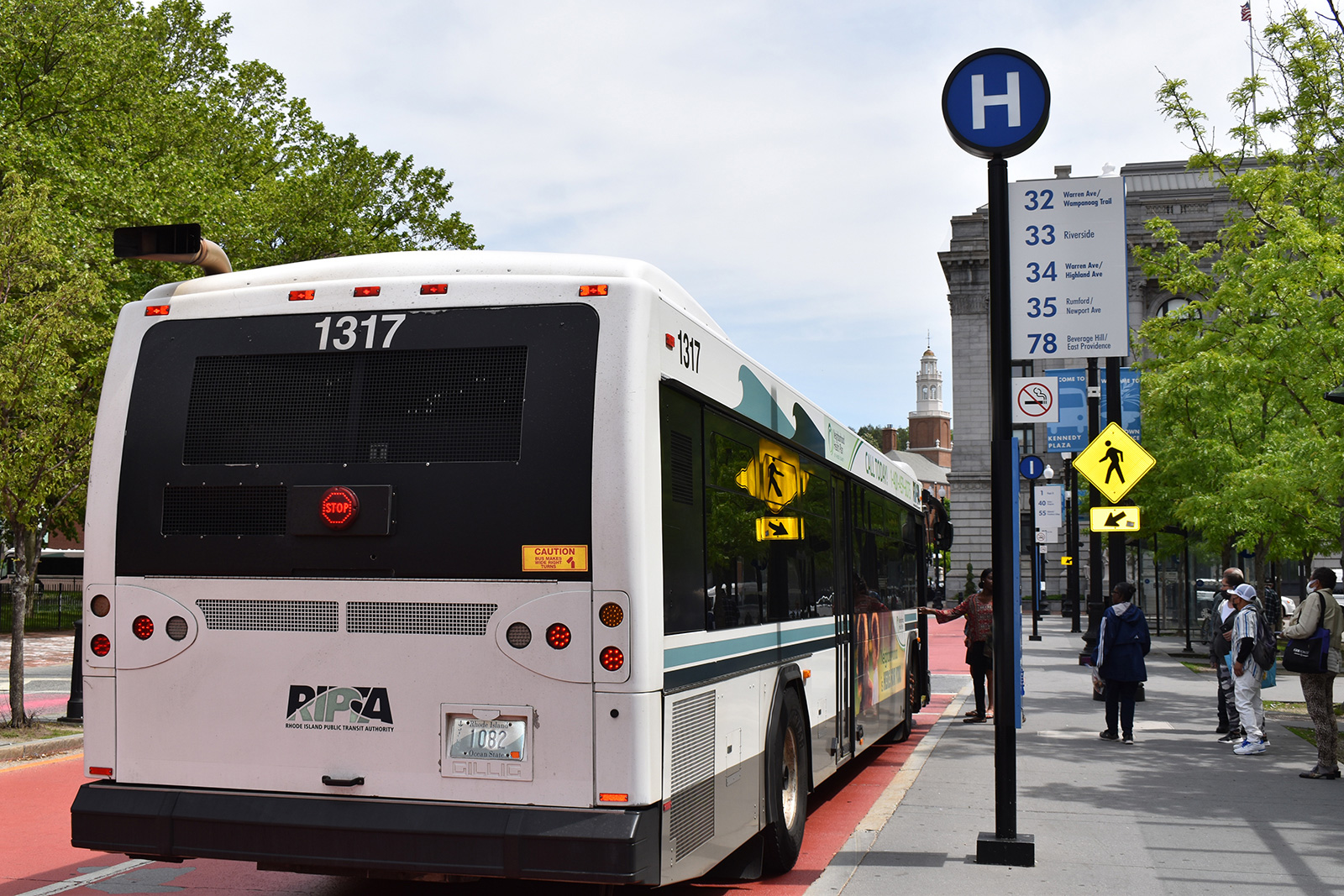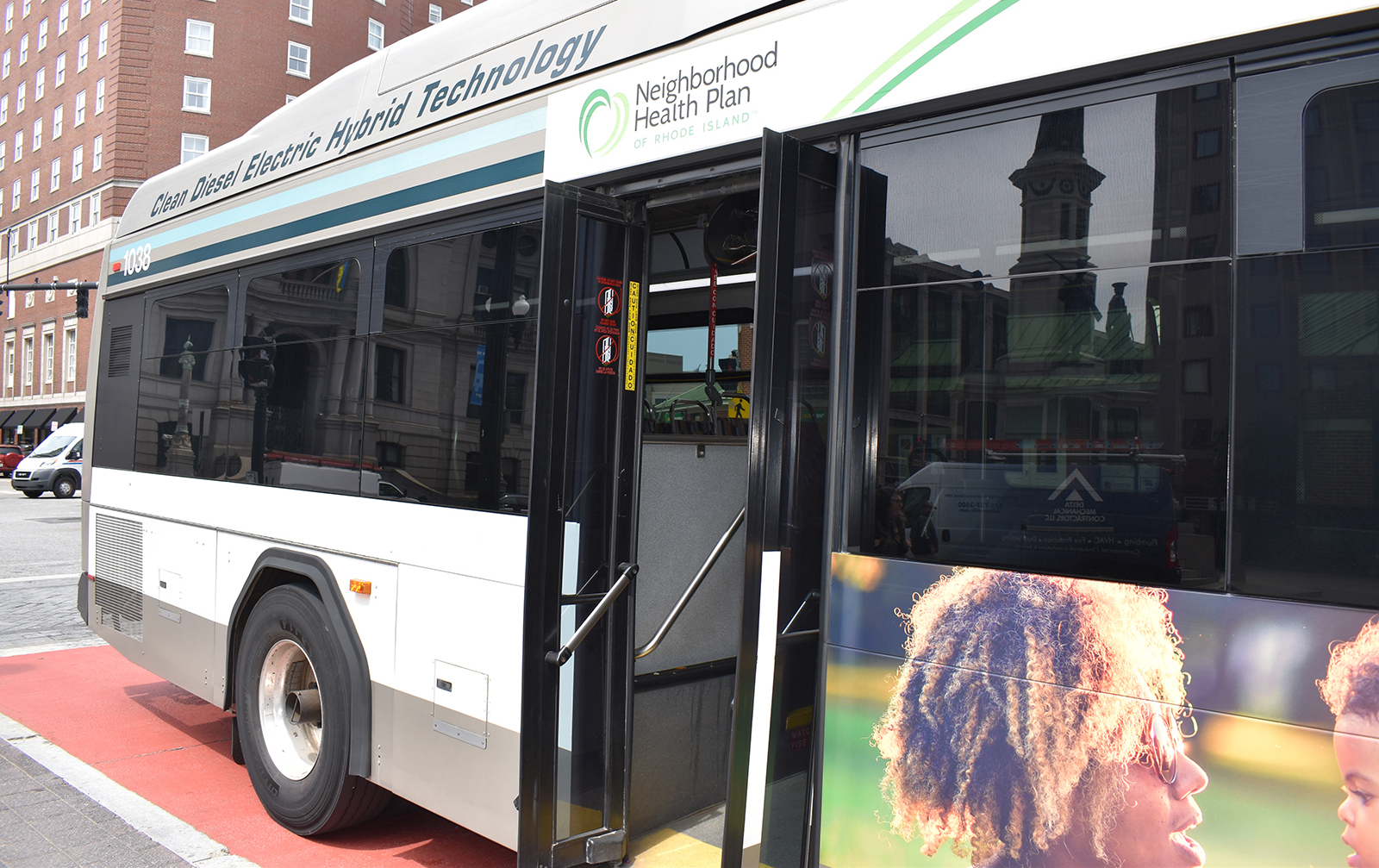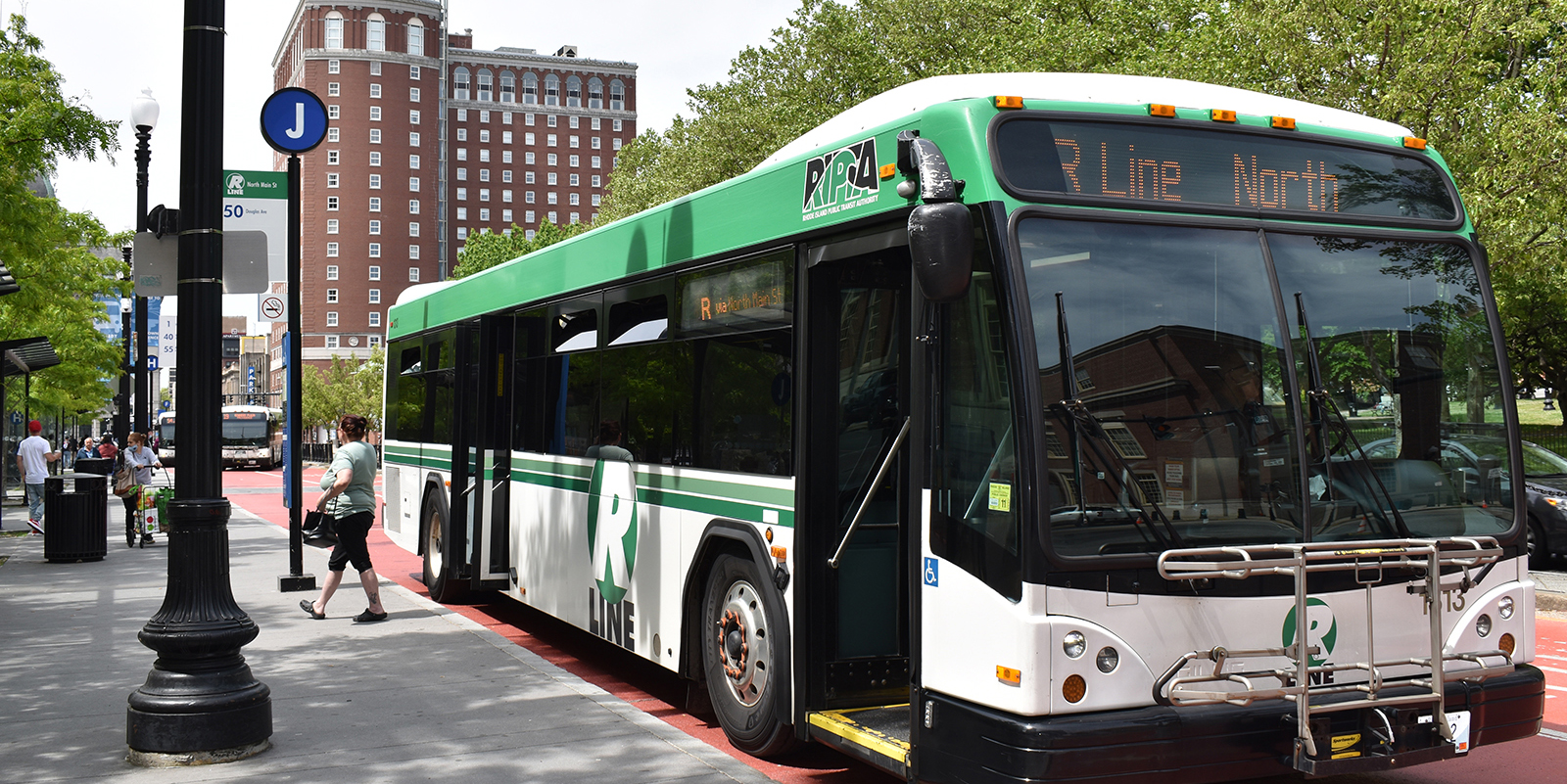RIDOT Director Assigns RIPTA Staff Homework Ahead of Likely Ascension to Chair
June 26, 2023
PROVIDENCE — The Rhode Island Public Transit Authority board likely held its last meeting this week before state Department of Transportation director Peter Alviti becomes its chair.
Though Alviti was not yet presiding over the board, he took an active role in asking questions, making motions, and even assigning “homework” to RIPTA staff at the Wednesday afternoon meeting.
Legislation passed by the General Assembly earlier this month, but not yet signed into law by the governor, mandates RIDOT’s director sit as chair of RIPTA’s board, effective July 1. Normand Benoit was re-elected chair earlier this year and currently holds the position.
If signed, the bill would also add a ninth member to the board and increase the quorum to five.
“While it is no secret that Rhode Island Transit Riders was not in favor of a board reorganization, we feel that we’re all working toward the same goal, which is to improve the bus service throughout the state and to begin working on the Transit Master Plan,” Patricia Raub, one of the co-coordinators of the organization, said during the meeting’s public comment. “We stand ready to help the board and director Alviti in achieving that goal.”
Transit advocates opposed the reorganization because of concerns about a potential conflict between RIDOT’s goals, which often involve improving highways, and RIPTA’s transportation goals laid out in its Transit Forward 2040 plan, which include expanding service and improving reliability. Advocates were also worried about Alviti’s attendance at the meetings — he has missed 14 of the past 29 — and his decision to stop holding a regular roundtable meeting between RIDOT and transit advocates.
Alviti told ecoRI News that transit advocates’ worries were “unfounded.” He noted that in the future, he wanted to look at what the board could do to change the time of the meetings to increase attendance. Currently, the board meets once a month, Wednesdays at 1:30 p.m. He also said he would not consider assigning a designee to take his place on the board.
Supporters of Alviti’s likely new role, such as fellow board member Patrick Crowley, said RIPTA needed better oversight than the board was currently providing.
During the budget overview, given at each meeting by chief financial officer Chris Durand, Alviti asked Durand to provide the board with more budget modeling to show different scenarios that the agency might face when it exhausts federal COVID funding in 2025.
“Without service impacts, or minimizing service impacts, how would you refocus existing resources to keep, at a maximum, the service levels we’re currently providing?” Alviti asked.
At a previous meeting in May, Durand laid out how the impending $30 million cliff would lead to major service cuts and layoffs. Those scenarios would also leave the Transit Master Plan unfunded.
“I wouldn’t limit ourselves to just providing, you know, the scenario, the single scenario, of service cuts,” Alviti said.
Alviti also helped nix a vote on a bid to start work on the feasibility study for high-capacity transit corridors, citing the nearly million-dollar difference between the two request for proposal (RFP) submissions RIPTA received.
The RFP that RIPTA staff rated more favorable was significantly more expensive than the other.
Alviti asked that the specific request for proposal submissions be reviewed by the board before the next meeting and a vote, and other board members agreed.
After a presentation on RIPTA’s Action Plan on Electrification and Service Growth, which lays out how the authority could cut its fleet emissions with different technologies in the coming years, Alviti asked that staff create a budget scenario that precluded any additional funding for electrification to gauge the feasibility and offer a realistic timeline for the project. The Act on Climate law mandates net-zero emissions by 2050.
“The agency very much needs to be the proactive agent in creating those additional revenues,” Alviti said. “Not just ask for them, but in actually creating them in order to make any of these things real.”
He also asked staff to come up with a number for the budget differences needed to make each of the scenarios happen. “Just add this to the homework,” he said.
Federal and state funding make up the majority of RIPTA revenues, especially as fare revenues are down since COVID and the introduction of several temporary free fare programs, such as the R-Line free fare pilot.
“Even in the good old days, fares were probably 19% of our revenues, so they’re not going to be a solution,” said Benoit, though he agreed that specifics are important. “We need something concrete to bring to the General Assembly without scaring them.”
Board vice chair Robert Kells asked whether getting specific numbers for some data points might be difficult because they are part of plans meant to be implemented over the coming decades.
“It’s information that they should have at their fingertips,” Alviti said. “I think the answers that we get will affect how the board moves forward to implement the master plan.”
The next RIPTA board meeting is scheduled for July 19.
Categories
Join the Discussion
View CommentsRecent Comments
Leave a Reply
Your support keeps our reporters on the environmental beat.
Reader support is at the core of our nonprofit news model. Together, we can keep the environment in the headlines.
We use cookies to improve your experience and deliver personalized content. View Cookie Settings




The jury is out on Mr Alviti”s leadership but so far my interpretation is that he wishes to be proactive rather than reactive.
Let’s give him a chance to prove himself.